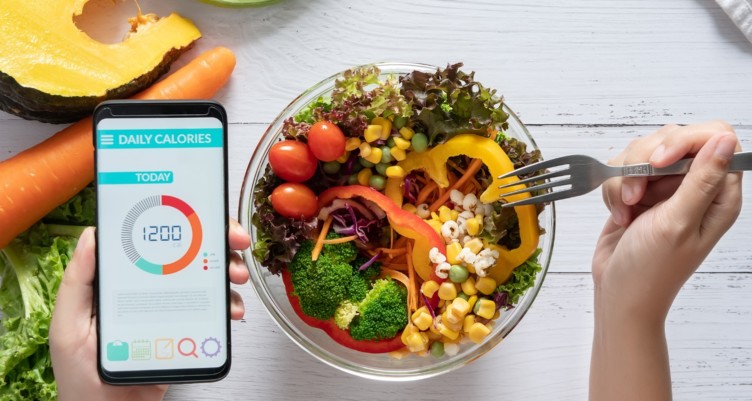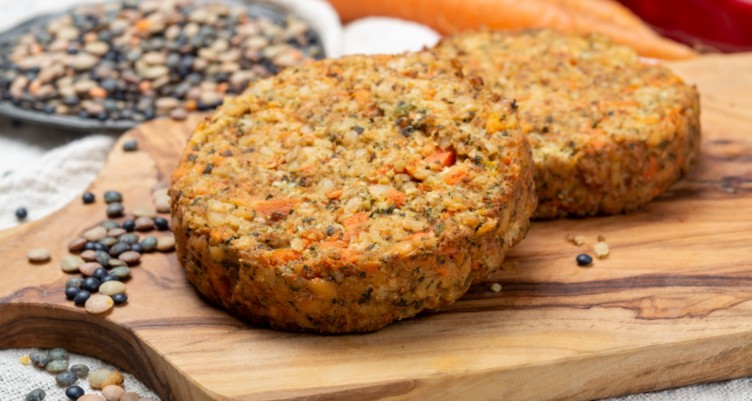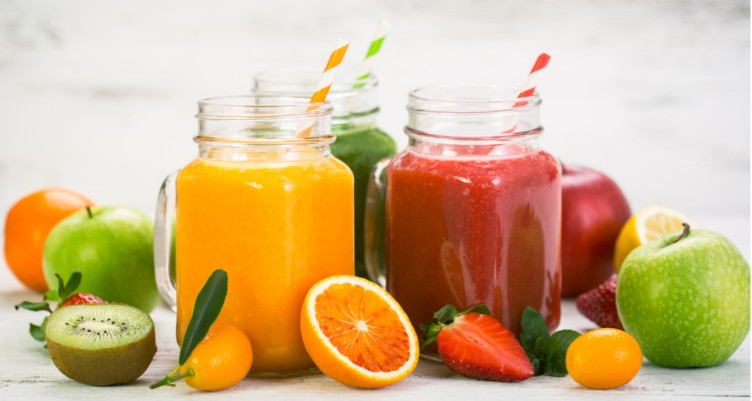7 Diet Trends to Ditch in the New Year

- While it’s easy to fall for the latest diet trend, doing so may lead to problems, including potential nutritional deficiencies.
- The new year gives you an opportunity to ditch fad diets and other strategies that don’t set your body up for long-term success.
- Embracing an eating plan that’s based around whole foods can help you reach your goals in a way that fad diets cannot.
The new year is right around the corner, which means, by default, it’s time to think about a fresh start. While many people make resolutions to embrace new things (like giving early-morning workouts a try), the new year is a great time to ditch old habits, as well. Making changes that benefit your body by scrapping trends or practices that aren’t good for you is a perfect way to start the new year off right.
Let’s take an inside look at a few fad diets and other trendy ways of eating to kick to the curb as you work to define the new-and-improved you.
Why Fad Diets Are Bad

It’s certainly tempting to latch on to any new trend that promises life-changing results, especially diets. That doesn’t mean social media is the enemy, though. Twitter, Instagram, YouTube and other platforms have allowed health-conscious folks around the world to share recipe ideas, workout routines and fitness tips and inspire others to take control of their health and well-being.
Still, as much as we support the use of social media to spread ideas, it’s just as easy to fall for the latest trendy diet post on your timeline. And though it may seem like a sound idea to follow a fad diet, most aren’t sustainable. You may see a few short-term benefits, but since many of these diets ignore your body’s macronutrient requirements, they don’t provide adequate levels of necessary fats and proteins.
Translation: These diets aren’t long-term lifestyle solutions, but rather temporary “fixes” that may ultimately do more harm than good.
7 Diet Trends to Ditch in the New Year

Several fad diets have gained adherents in recent years, and many of them range from ineffective to downright dangerous, resulting in vitamin deficiencies and worse. From the Calories In Calories Out (CICO) approach to the Five Bites Diet (talk about restrictive!), these trends can wreak havoc on our bodies.
The new year is the perfect time to ditch poorly conceived diets and embrace a new way of eating that focuses on meeting your macro goals primarily through whole foods.
Here are seven diet trends you can leave behind in the new year.
1. CICO (Calories In Calories Out)
The idea of burning more calories than we consume as a way to lose weight is outdated and potentially harmful. On the surface, it seems like consuming 2,000 calories a day while burning 2,500 is a simple way to see the number on the scale go down and your well-being go up.
But that’s simply not the case. CICO doesn’t take into account that not all calories are treated the same way. It’s the source of those calories that matters.
To illustrate, when we consume a carb-laden meal, our GI tract breaks those carbs down into sugars. When the amount of sugar in the blood rises, the pancreas produces insulin, which allows sugar to exit the bloodstream and enter cells for use as fuel or to be stored as glycogen or fat. When we maintain a consistent level of even slightly elevated blood sugar, our bodies aren’t given the chance to burn fat for fuel.[1] This means that even if we burn more calories than we consume, if those calories aren’t from the right sources, our bodies may not burn fat efficiently, and you may struggle to achieve your goals.
CICO seems logical at first glance, but it’s actually a diet trend worth bidding adieu to in the new year.
Related: Why You Aren’t Losing Weight on the CICO Diet
2. Plant-based ‘animal’ proteins

Meatless “meats” are very on-trend right now, but despite the boon they provide to conservation and sustainability, they really aren’t all they’re cracked up to be. Although food scientists may have created plant-based meat and fish substitutes that taste like the real thing (and have similar textures), they’re lacking some vital nutrients we derive from eating actual animal protein sources.
For example, wild-caught salmon contains valuable fatty acids that benefit our brain and cardiovascular health. However, plant-based salmon doesn’t pack the same antioxidant punch as its real fish counterpart.
In addition, plant-based animal proteins are typically heavily processed. Vegetarian meat substitutes often contain a long list of filler ingredients that you simply won’t find in any grass-fed steak or fish caught from the ocean.[2]
Related: What Makes a Protein Complete?
3. The Raw Diet
Raw diets have gained popularity due to an increased awareness of issues related to additives, preservatives and processed ingredients in many foods. However, there are potential health issues related to raw diets, too.
Many plant foods contain anti-nutrients—compounds that actively prevent or limit the absorption of vitamins and minerals.[3] Lectins, glucosinolates, phytates and oxalates are found in a variety of vegetables, including leafy greens, legumes, broccoli and Brussels sprouts. Consuming raw versions of these plants in large quantities can contribute to certain vitamin and mineral deficiencies, or worse.[4]
Cooking breaks down the majority of anti-nutrients, which is why we wouldn’t expect as many deficiencies related to cooked diets as raw diets. While we encourage you to incorporate veggies into your weekly meal plan, you definitely shouldn’t base your diet primarily around eating raw produce on a daily basis.
4. Juice Cleanses

The concept of juice cleansing has been around for a while, and when done in moderation, it may have some nutritional benefits. However, putting this practice into effect over the long term can be problematic. Consuming predominantly fruit and vegetable juices can lead to problems similar to the fruitarian diet (more on that just below), as your body will not get necessary proteins or fats–both of which are required for various functions.
To give your body a jump start in the new year, try an intermittent fasting protocol, instead. Limiting your food intake to a specific eating window promotes autophagy, one of your body’s natural detoxification processes.
In other words: It’s a far superior “cleansing” option than juicing!
5. Fruitarianism
Fruits are whole foods that come from nature, so adopting a fruitarian diet might seem like a good idea. But following a fruit-based diet can contribute to malnutrition quickly. (Sorry, mom and dad!)
Fruits lack several vital nutrients like protein, fat, calcium, B vitamins and omega-3 fatty acids. Plus, many of them contain high levels of fructose, a naturally occurring sugar that, in large amounts, can be problematic for your liver, pancreas and brain.
Eating fruits isn’t inherently bad. Eating only fruits is a bad idea because of the lack of nutrient balance.
Related: The Effects of Sugar on the Brain (Trust Us, It’s Not Pretty)
6. The Baby Food Diet

The Baby Food Diet recommends you replace breakfast, lunch and snacks with 10-15 jars of baby food. But once you delve deeper into the science of this approach, you’ll quickly realize it’s best to leave those jars for their intended consumers.
Baby food is low in fiber (and protein and quality fats), so the diet is not filling, which can encourage overindulgent eating behaviors. The nutrient content and caloric makeup of baby food varies by brand, so that can make things even more complicated.
Don’t fall for the trap of getting your calories from jars of food meant for newborns. Leave the Baby Food Diet behind—it has no business being part of your routine.
7. The Five-Bite Diet
The Five-Bite Diet is an extremely restrictive fad diet that literally allows you to only consume five bites from lunch and dinner meals. As for breakfast? It doesn’t exist on this diet. Instead, you can only drink black coffee in the morning.
This diet can quickly lead to significant nutrient deficiencies and potentially promote unsafe eating habits. This type of restrictive diet can also result in a less-active metabolism, which can inhibit your progress in achieving your fitness and body composition goals.
Related: The Truth About Fad Diets and What to Do Instead
The bottom line: The new year is a prime opportunity to take control of what you do and don’t put into your body. That begins with ditching fad diets and trends that don’t provide the building blocks you need to thrive. Your dietary journey should involve establishing eating and lifestyle habits that will benefit your overall health and well-being—not eating baby food or restricting yourself to only five bites per meal. (Thanks, but no thanks!)
Now that you know which diets to ditch in the new year, it’s time to delve deeper. Here’s the skinny on whether or not diets actually work.
Sign up for early access to sales, product launches, the latest Bulletproof news and more!



